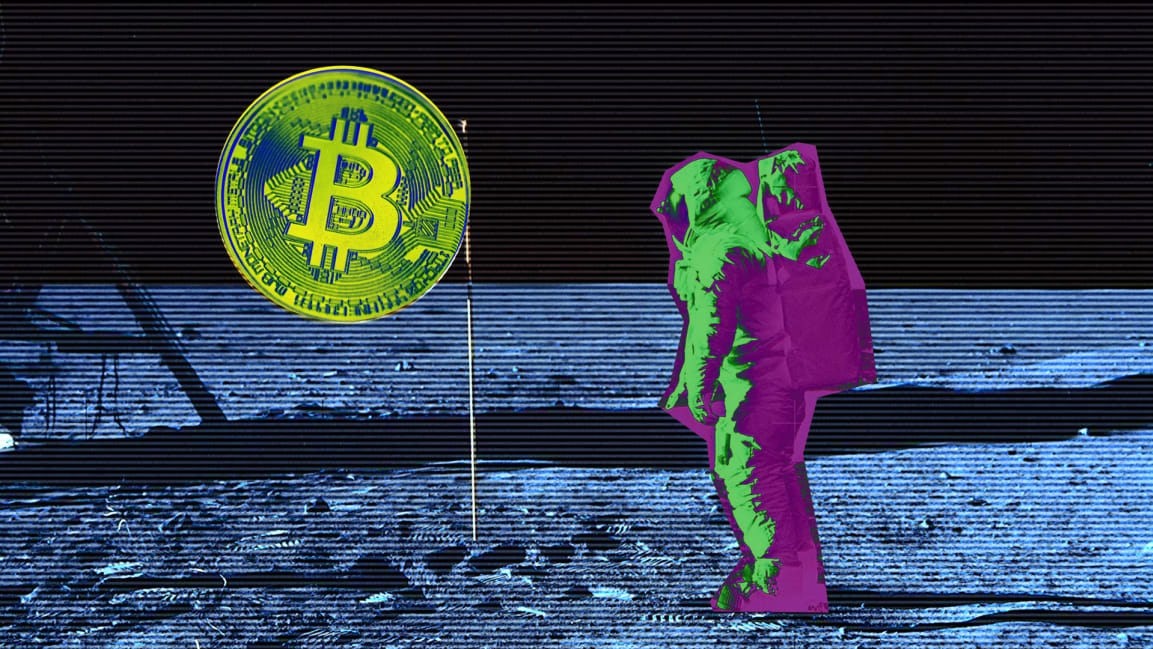For the music industry, cryptocurrency will be as disruptive as MTV
Until now, with cryptocurrency.
We are just starting to see artists of all levels experiment with their own cryptocurrencies to tap into new revenue streams and deeper fan engagement. Performers are embracing it as an alternative to the big tech-owned social media platforms that have been profiting from their labor over the past decade. And much like MTV’s early years, cryptocurrency has the same independent game-changing spirit to shake up the system and the potential to massively shift pop culture.
From its inception, MTV understood the symbiotic relationship between artists and fans and helped drive a significant change in the industry’s business model, whereby fans expected interaction with their favorite artists. During my time at MTV (and sister net CMT) from 2010 to 2018, the brand continued to expand beyond music, but that fundamental understanding was ever present in early experimentation across digital platforms.
With the O Music Awards, MTV pioneered new ways for fans and artists to connect online, including the world’s largest digital music festival and the Flaming Lips’ record-setting tour during which they performed eight concerts in 24 hours, starting in Memphis and ending in New Orleans. The launch of MTV Artists platform in 2012 marked an ambitious effort to help artists gain entryway into our corridors by self-submitting their videos to air across MTV, VH1 and CMT, while also creating a one-stop-shop where fans could listen and buy music, purchase tickets, and more. At the 2013 VMAs, we provided a new type of immersive experience, giving viewers the ability to choose camera feeds and chat with other fans from around the world. And in the last five years, CMT has pushed for equality with the “Next Women of Country” campaign, which introduces fans to up-and-coming female artists that have largely been ignored by country radio.
While MTV was innovating during this time, social media startups, music streaming services and video platforms were taking off and showed tremendous promise in bringing fans closer to their favorite artists than ever before. Just when social media was gaining massive traction in 2013, MTV released a study called “Music to the M Power” which showed how social media was dismantling barriers between artist and fans, creating a “zero-distancing” effect. More than half of millennial respondents stated that they felt closer to their favorite acts when they shared personal information with them.
Despite the promising start, when we analyze the digital landscape today, there are still factors that cause rifts in the artist-fan relationship. Although we have the ability to access nearly all recorded music from our smartphones, we’ve sacrificed intimacy for urgency. Twitter and Instagram provide followers access to their favorite performers with the touch of a button, but there is no sense of real connection. Streaming platforms like Spotify and YouTube provide a way for fans to quickly access music at an affordable price, but there is a lack of engagement and excitement through these mediums. Fans are just a number on a screen—a contributor to a listenership count.
But crypto has the potential to close this gap. Where fans have always been on the floor of the arena looking up at the artist, with crypto, for the first time ever, fans and performers earn together. Fans are holders of a token demonstrating their super fandom and can use that token as an access pass to exclusive content, NFTs, experiences, and communities of their favorite artists. Artists can offer goods and services in exchange for their own currency, and both fans and creators can participate in the growth and success of this economy. Every day with Rally, I work with creators to experiment with seemingly endless fan benefits. Rally has collaborated with Portugal The Man, who are looking to re-invent the fan club with crypto, Beyoncé’s Grammy Award winning producer !llmind, who is collaborating on new music with fans, and DJ Wax Motif, who will let you hang with him at a music festival.
Much like music videos existed before MTV, the concept of social tokens and NFTs is not new. Over the past few years, a massive investment has been made to build out software, networks, and platforms that can mint NFTs and launch social tokens at zero or an extremely low cost. This ease of use has opened access to the technology and led to amplified experimentation by mostly emerging artists.
Crypto allows performers of all levels to own their financial relationship with fans instead of relying on the traditional record label system and/or tech giants to serve as a middleman. Artists are using NFTs to earn years worth of streaming revenue in one day and unlock unique experiences for fans without relying on a centralized platform to facilitate it. Moreover, crypto gives artists control over their own economic success. In the next few years, we’ll see crypto become core to an artist’s strategy, not only as a fan engagement tool, but as a consistent revenue generator as well. We’ll see artists build their empires around crypto: from album releases to new music videos and merch powered by their social tokens. NFTs will be used for secure ticketing, ensuring that the artists will earn even if the ticket is scalped. The power dynamic between fan and artist will shift and finally place fans on the same level as their favorite artists, creating a much-needed sense of community where artists and fans are building a brand-new digital economy together.
Just like it seemed almost unfathomable that a small upstart on a fledgling new medium would forever change the landscape of music, crypto offers artists and their fans endless connection points, all while moving the business to the next level with an alternate revenue stream that brings greater value to the creator-fan relationship.
Kurt Patat is Global Head of Communications at Rally and formally SVP of Communications at MTV/CMT.
(44)



